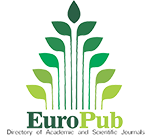Protected designation of origin as driver of change in goat production systems: Beyond added value
DOI:
https://doi.org/10.48162/rev.39.019Keywords:
Quality label, Farming style, Rural development, Farmers' perception, InnovationAbstract
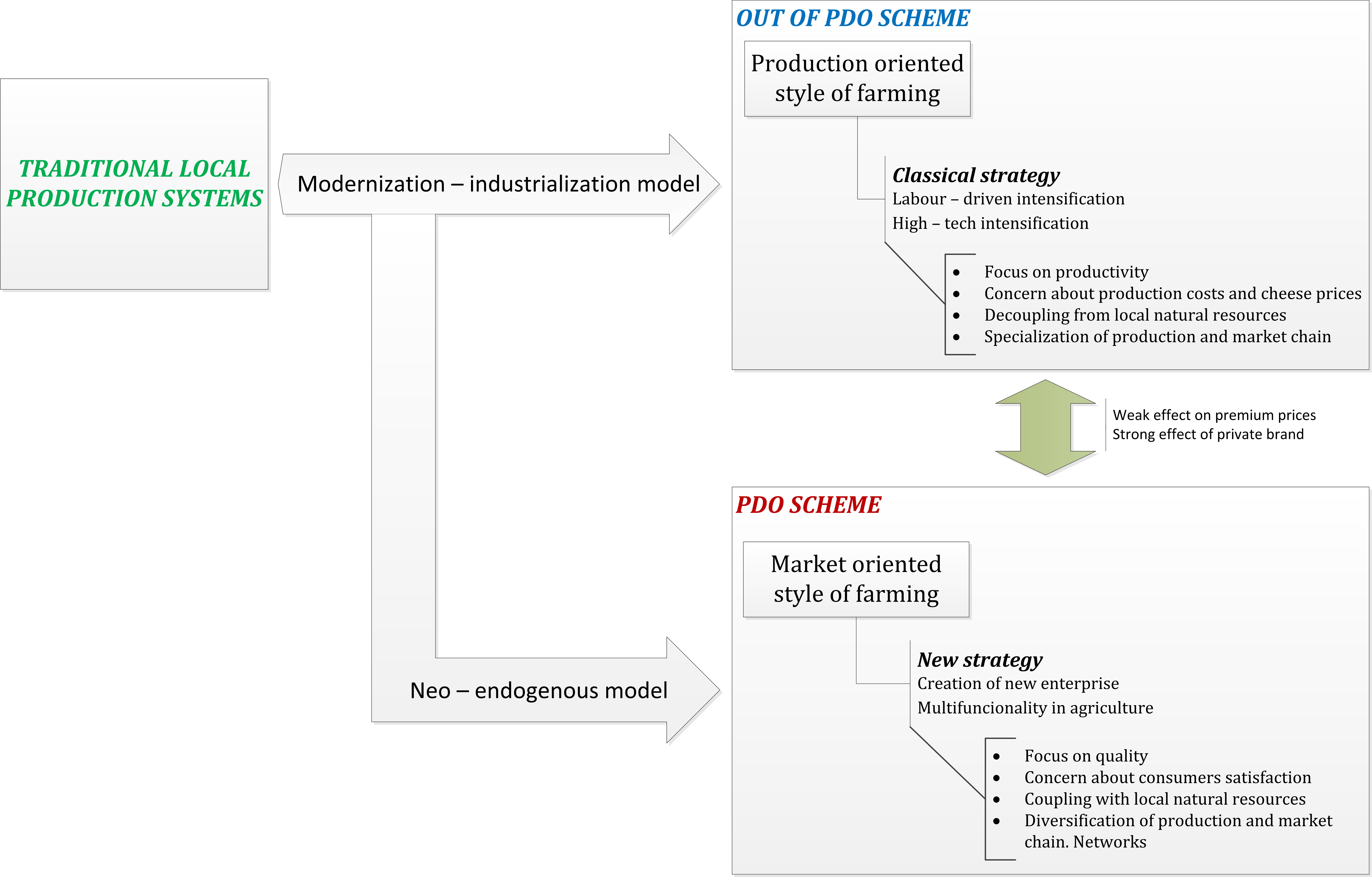
Protected Designation of Origin (PDO) is one of the EU tools for rural development. Most of the literature on this subject is focused on premium prices and consumers’ willingness to pay for local products, since PDO and other labels aim to provide premium incomes for farmers. Our assumption is that PDO drives unexpected changes of farming styles not only related to processing or market strategies but also related to local resources using and to stablishing of different approach to agriculture and food production. We analyzed the PDO Queso Palmero (La Palma cheese) as a case of a dual label system (brand–certification common label) because it gives us the opportunity to compare farmers involved in a PDO scheme with farmers who works outside such systems. We conclude that private brands are more important than common label certification in price formation, but both are complementary, since PDO reinforces farmers’ efforts to improve quality. Beyond premium price, PDO also drives a radical change in farm structures, since it reconnects products to local resources (grazing vs intensification) and redesigns relationships with markets (shortening and diversifying chains and widening product offer). This change is characterized by implementation of new farming strategies in the context of PDO structure that coexist with classical farming strategies closer to intensification, not only in terms of productivity but also in terms of decoupling from local resources and productive and market specialization. Therefore, PDO is a powerful tool for rural development in a wide sense (resilience, empowerment, local capacity and network formation among others) far beyond its narrow remit of promoting economic growth (local or regional). Therefore, the coupling with local resources and the strength of local network and relationships as source of resilience, knowledge and capabilities improvement, have to be included in performance assessment of GIs in order to broaden the appraisal of role in regional development.
Highlights
- PDO as institution is a powerful tool of farm transformation not only a protection structure of collective heritage or asset.
- Private brand effect on price is larger than common label effect (PDO label).
- PDO as institution leads radical changes of goat production systems from more production – oriented toward more market – oriented styles.
- Market chains and product diversification, focusing on quality, concern about consumers and coupling with local resources are distinctive features of farms involved in PDO.
Downloads
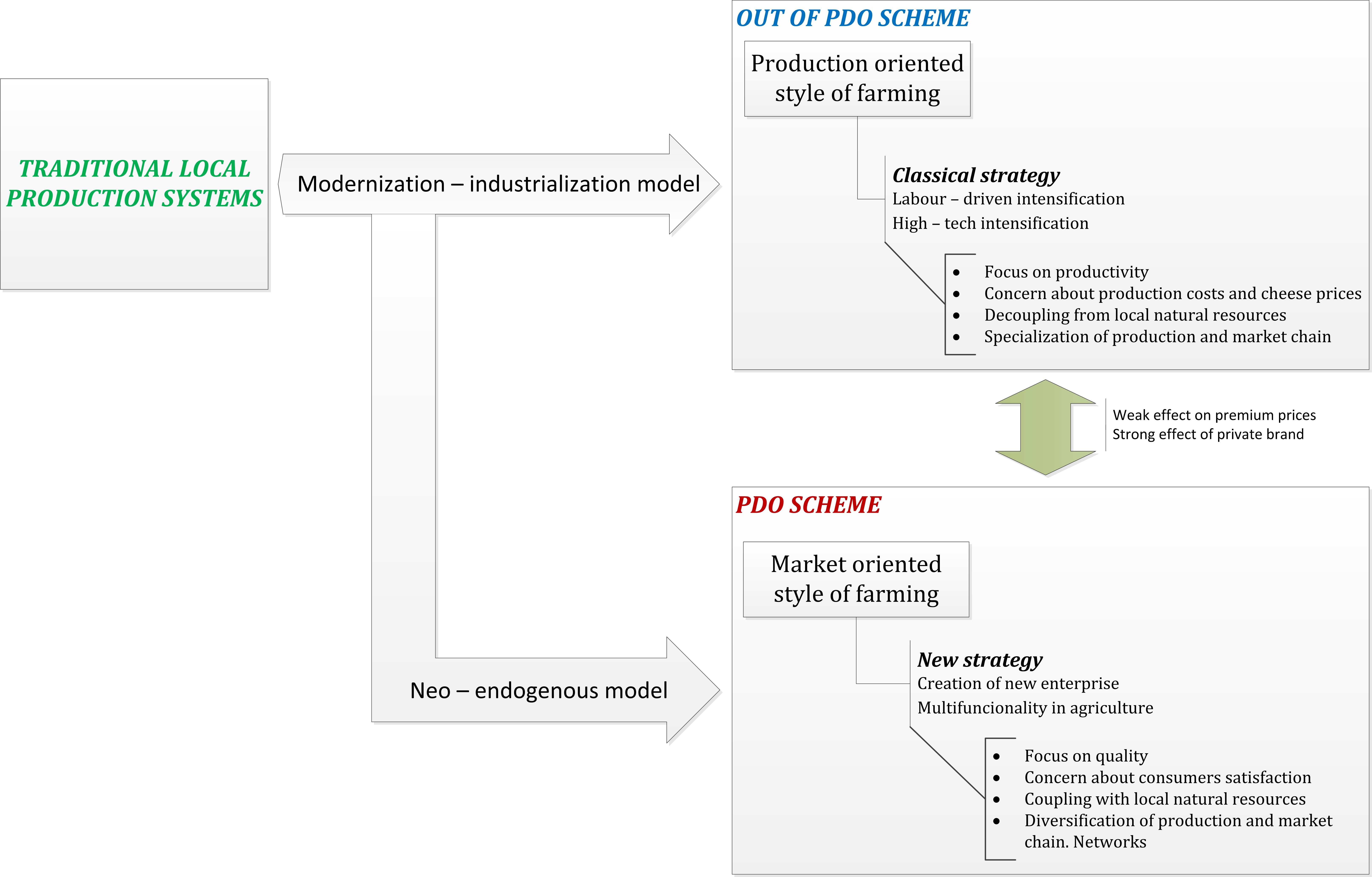
Downloads
Published
How to Cite
Issue
Section
License
Copyright (c) 2021 Revista de la Facultad de Ciencias Agrarias UNCuyo

This work is licensed under a Creative Commons Attribution-NonCommercial-ShareAlike 3.0 Unported License.
Aquellos autores/as que tengan publicaciones con esta revista, aceptan las Políticas Editoriales.



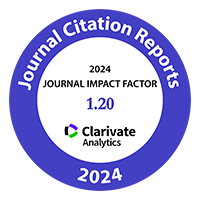




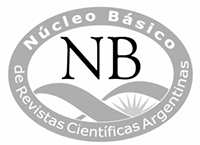


.jpg)
